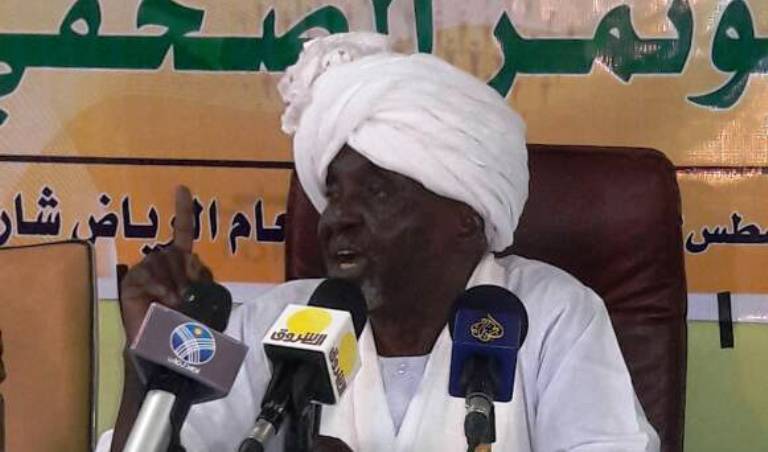Sudan Islamists vow to form broad opposition alliance to interim cabinet

August 27, 2019 (KHARTOUM) – The Islamist Popular Congress Party (PCP) of Ali al-Haj said determined to form a broad coalition in coordination with other political forces that were allied to the ousted regime to oppose the transitional government led by Abdallah Hamodok.
The PCP-initiated Coordination of National Forces (CNF) officially launched its activities last June two months after the fall of the al-Bashir regime. It gathers seven political groups, most of which participated in the coalition with the National Congress Party of the deposed President Omer al-Bashir forged after the national dialogue process.
“We have decided to oppose and monitor the (upcoming transitional) government so as not to lead us to a new dictatorship,” said Idriss Suleiman, the PCP political secretary in statements to Sudan Tribune on Tuesday.
Suleiman statements come six days after a press conference held by PCP leader to reject the formation of the new government after the appointment of Abdallah Hamdok as prime minister.
Al-Haj who had rejected calls by the PCP youth to join the revolution said the country would be ruled by a military government that will further isolate Sudan externally and maintains it on the list of terrorism.
He further said that some members of the transitional government are wanted for war crimes and will reach out to the International Criminal Court to investigate their alleged crimes.
Suleiman, for his part, accused certain FFC groups and some military leaders of excluding them and preparing a constitutional document on improper grounds.
“The constitutional document has not been shown to the public. The constitution is made by the people, but they even have not consulted some components of the Forces of Freedom and Change,” he said about the Constitutional Declaration negotiated during four months by the FFC and the junta.
Suleiman reiterated that his party and other forces will not recognize the constitutional document and “will tear it up”.
“We will strive to restore power to the people and hold free and fair elections,” he added.
The PCP and its allies call for elections within a period not exceeding one year as they say that the formation of a government for more than three years without a popular mandate would lead the country to serious troubles.
During the strife between the FFC and the military junta after the attack on the pro-democracy sit-in in Khartoum, the PCP voiced its support for the Juna and had been approached by Mohamed Hamdan Daglo Hemetti who at the time called to include the PCP and its allied political groups in the transitional parliament and government.
However, after the increase of popular pressure and the huge nationwide protest of 30 June, the military council abandoned this plan and worked with the FFC to finalize the transitional constitution and the formation of the transitional authority.
NCP-PCP ALLIANCE
Asked about the possibility of coordination with NCP of al-Bashir in the coming period, Suleiman said that this step is excluded currently because they do not have enough information, about the NCP’s political plans.
However, an NCP source disclosed to Sudan Tribune that there had been contacts between them and the PCP to form a broad front, but Ghandour rejected such alliance preferring to limit coordination to major issues.
The former ruling party recently picked Ibrahim Ghandour as the NCP leader seconded with a leadership council including Ahmed Ibrahim al-Taher, Jamal Mahmoud, Ibrahim Mahmoud, and Haj Adam Youssef.
(ST)
